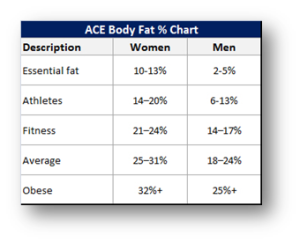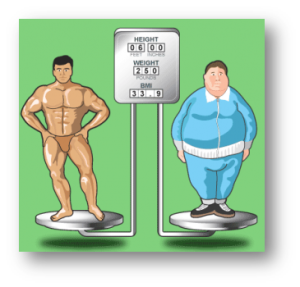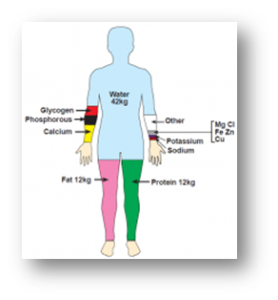THE REALITIES OF WEIGHT LOSS
Most people would agree that, in general, North Americans need to eat less and move more. However, when it comes to helping people lose weight and keep it off, the prevailing approach of “the more weight you lose each week, the better” (i.e. Weight Watchers and The Biggest Loser) is one destined for failure!
The problem with simply focusing on “weight lost” is that no distinction is made whether you lose appreciable amounts of fat or muscle. Unfortunately, just cutting calories in the absence of resistance training often results in the scenario where you also wind up losing a considerable amount of muscle mass. This is not good.
In fact, the standard approach to dieting (simply reducing calories) often only makes you a smaller version of your previous self!
- Imagine starting off 180 lbs and 25% body fat then after “dieting” you drop to 160 lbs, but remain 25% body fat – definitely not what you want to have happen!
- Of course, by incorporating the resistance training coupled with nutrition strategies introduced throughout the course, you’ll be doing an excellent job of protecting your muscle mass, even while dieting.
But the bad news does not end there. Because conventional dieting causes you to lose quite a bit of muscle mass along with some fat, it leads to a condition where you end up with a significantly slowed metabolic rate.
This slowing of metabolic rate might not be such a dramatic problem if you were willing to follow a low-calorie diet forever. Unfortunately, most humans become incredibly irritable and hungry when calorie deprived, which prompts them to return to their previous way of eating the first chance they get.
Only now they are eating more calories on top of having a sluggish metabolism to contend with, which leads to rebound weight gain!
So in a nutshell:
- Eating a little less = good.
- Eating a lot less = not so good long-term.
- Eating a lot less + no weight training = bad.
- Losing muscle + returning to eating a poor diet = very, very bad
A Weighty Issue
Although many people obsess about the number they see on the scale (i.e. body weight), in reality scale weight can, at best, be considered to provide incomplete information.
Same BMI, Different Physiques!
Take the example above. Both of these individuals are the same height and same weight therefore would have identical BMIs (body mass indexes), however, their bodies are clearly quite different.
The gentleman on the left has excellent bone density, ample muscle mass and minimal fat mass: in effect he is the picture of health. Conversely, the gentleman on the right is all flabby and is at much greater risk of several chronic diseases.
 Is there even a question which body composition* you would rather have?
Is there even a question which body composition* you would rather have?
*Body composition is an estimate of the amount of fat vs. lean mass (muscle, bone, water, glycogen) someone has.
** Males and females have gender-specific levels of body fat that can be deemed optimal.
If we consider that changes in total body weight really consist of changes to both body fat and lean mass, we discover that it is possible that the scale might not change even though your body clearly has.
Imagine the scenario where someone loses 5 lbs of fat, but gains 5 lbs of lean mass at the same time. Although the scale suggests “no change”, in reality this individual has experienced a total of 10 lbs of positive body composition change!
Of course, separating body weight into two simple components (fat mass vs. lean mass) still represents a vast oversimplification.
A more accurate, and ultimately useful, approach would be to classify the human body into the following 6 components:
Six Component Model of Body Composition
- water
- fat
- protein
- bone mineral
- soft tissue mineral
- glycogen
By outlining six components, we can better understand why weight change can be seemingly unpredictable. Several of the six components can fluctuate very rapidly whereas others can take months or years to change.
Day-to-day variations in water and glycogen levels can cause scale weight to easily swing up or down several pounds.
If you are someone who lives or dies by the scale, obsessively stepping on the scale at varying times of a day or even varying times of the menstrual cycle is a surefire way to give yourself an ulcer.
Conversely, building new muscle takes months while significantly building bones can take years!
Considering, most weight loss programs only focus on ensuring you lose scale weight, they DO NOT provide much value in terms of helping you improve your health and physique long-term.
In order to ensure you continue making progress over your lifetime, it is of far greater benefit to focus on increasing strength and conditioning, which in turn will ensure you continue to improve body composition.
And P.S. ladies: females do not produce enough natural testosterone to build “man muscles” so resistance training is NOT going to make anyone get too bulky. You need to lift heavy just like guys do.
So there you have it, an essential lesson why obsessing about weight loss ISN’T your best bet when it comes to producing serious results


